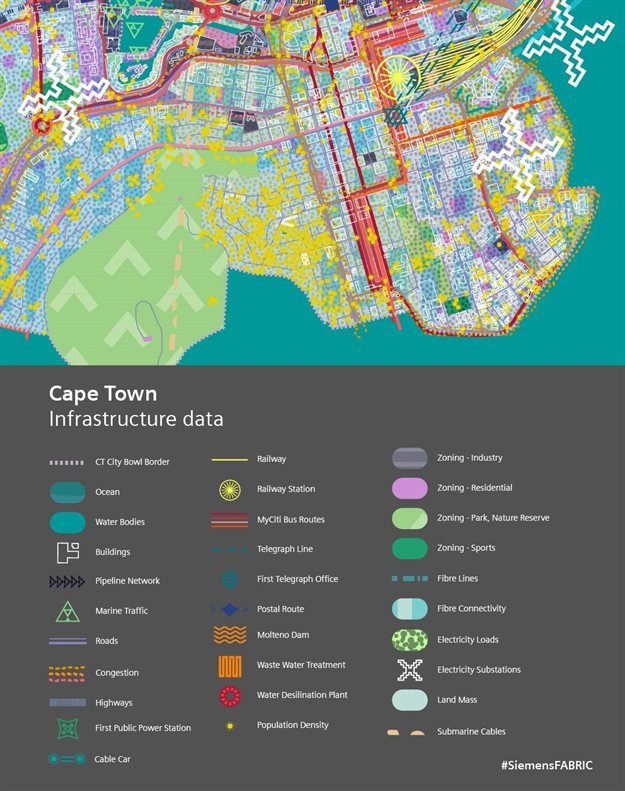
Related
Top stories






More news


Marketing & Media
Ads are coming to AI. Does that really have to be such a bad thing?














According to Siemens, the brightly weaved fabric – inspired by Bo Kaap (one of Cape Town’s most distinct and colourful neighbourhoods) – outlines various infrastructure points of the city and its underlying data. Some of the points include buildings, marine traffic, railway congestion, zoning, waste-water plants, postal routes, trees, borders, pipelines and the ocean.
“These data patterns speak about unlocking the potential of African cities through digital ingenuity. Data on each infrastructure point gives greater insight on the challenges being faced in the city, and helps leaders make smart urban planning decisions in future,” said Siemens head of corporate communications for Southern and Eastern Africa Keshin Govender.
“Siemens has a long history with the City of Cape Town and has assisted in developing and maintaining many landmark projects. Throughout the years, we understood the challenges it faced and in future, we are open to continuing these kinds of partnerships to help create a more connected, efficient and powered city.”
Siemens’ first began working in the city of Cape Town in 1860 when it developed the first telegraph line between Cape Town and Simonstown. Since it’s inception, the company constructed the first public power station, electrified the Table Mountain cableway, commissioned the first hybrid Mediclinic laboratory and completed the Sere Wind Farm.
“Cape Town has come a long way since 1860, and going forward with smart infrastructure connecting energy systems, buildings and industries, there will be an evolution in the way the city serves its citizens in their daily lives.”
“It’s clear that Cape Town is embracing the fourth industrial revolution. With our expertise in automation, electrification and digitalisation, Cape Town will remain a powerhouse in Africa and lead the continent’s digitalisation revolution,” concluded Govender.
View the original article published on www.itnewsafrica.com.

IT News Africa, established in 2008, is a leading provider of Africa focused ICT news and information aimed at technology professionals and businessmen.
Go to: http://www.itnewsafrica.com